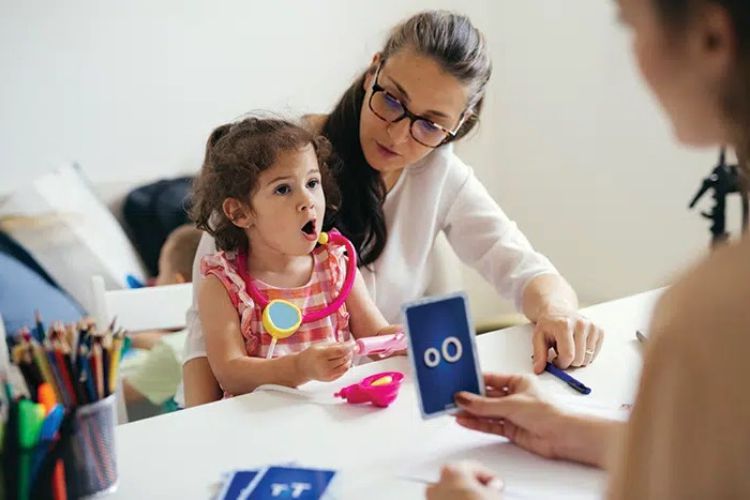 For many years, early childhood education focused heavily on traditional markers of progress—learning the alphabet, recognising numbers, and preparing for formal schooling. But today, educators and parents alike are beginning to look beyond these basics. The goal of pre-school is no longer just about knowing letters and colours. It’s about sparking curiosity, developing the whole child, and laying the groundwork for lifelong learning.
For many years, early childhood education focused heavily on traditional markers of progress—learning the alphabet, recognising numbers, and preparing for formal schooling. But today, educators and parents alike are beginning to look beyond these basics. The goal of pre-school is no longer just about knowing letters and colours. It’s about sparking curiosity, developing the whole child, and laying the groundwork for lifelong learning.
That’s why centres like Child Care Ormeau are embracing new approaches that blend academic foundations with social, emotional, and creative development, ensuring children are not only school-ready but future-ready.
Rethinking “Readiness”: It’s More Than Just Knowing Letters
While recognising letters and numbers is certainly helpful, school readiness now includes much broader indicators: how well a child can work in a group, express their needs, solve problems, and manage their emotions. A child who can cooperate, listen, and bounce back from mistakes is more equipped to thrive than one who can simply recite the alphabet.
Modern early learning focuses on nurturing:
- Emotional regulation
- Curiosity and creativity
- Language and communication skills
- Resilience and adaptability
- Confidence and independence
These skills are not taught through flashcards—they’re developed through experience, interaction, and discovery.
The Shift Toward Play-Based Learning
One of the biggest shifts in early education is the move toward play-based learning. While structured activities have their place, guided and free play give children the chance to make choices, ask questions, and take initiative.
Play-based learning allows children to:
- Explore cause and effect through hands-on activities
- Develop language through storytelling and imaginative play
- Build social skills through turn-taking, sharing, and teamwork
- Learn persistence through trial and error
When children are given the freedom to explore topics that interest them, their learning becomes deeper and more meaningful. They’re not just memorising facts—they’re learning how to learn.
The Rise of STEM in the Early Years
Science, Technology, Engineering, and Maths (STEM) are no longer reserved for high school students. In fact, early exposure to STEM concepts can foster problem-solving skills and analytical thinking from a young age.
STEM in early childhood might look like:
- Building towers and testing which shapes are strongest
- Using magnifying glasses to explore leaves and insects
- Mixing ingredients to understand cause and effect
- Exploring patterns and sequences with beads or blocks
These simple activities build a foundation for critical thinking and help children become confident, curious investigators.
Incorporating Nature and Outdoor Learning
Nature-based learning is another growing trend in early education. Time outdoors supports physical health and encourages a connection to the environment—but it also enhances creativity and reduces stress.
Outdoor learning can include:
- Gardening and observing life cycles
- Nature walks and sensory exploration
- Using natural materials for art and construction
- Learning about seasons, weather, and sustainability
By taking learning beyond the classroom, children develop an appreciation for the world around them and expand their understanding through real-world experiences.
Emotional Literacy as a Core Focus
Modern pre-schools are placing greater emphasis on helping children understand and navigate their emotions. Emotional literacy—the ability to name, understand, and manage feelings—is foundational for mental wellbeing, healthy relationships, and success in group settings.
Centres that prioritise emotional development may include:
- Daily check-ins or feelings charts
- Stories that explore empathy and inclusion
- Calm-down corners and self-regulation strategies
- Group discussions about kindness and fairness
These practices help children learn that all feelings are valid—and that there are safe, respectful ways to express and work through them.
Embracing Cultural and Individual Diversity
No two children learn the same way. That’s why high-quality early education settings take a flexible approach to teaching—one that honours each child’s background, learning style, and interests.
This might involve:
- Multilingual storytime
- Celebrating different cultural holidays
- Creating inclusive spaces with diverse books and toys
- Providing quiet zones for children who need less sensory input
A child who feels seen and valued is more likely to engage, explore, and grow.
The Role of Educators: More Than Just Teachers
In this modern approach to early education, educators act as facilitators of learning rather than instructors. Their role is to observe, guide, encourage, and respond to the interests of the children in their care.
Effective educators:
- Ask open-ended questions
- Support independence while offering reassurance
- Adjust activities to meet children at their developmental level
- Create rich, stimulating environments
- Build strong relationships with families
When children feel connected and supported, they’re more open to learning and exploration.
A New Vision for Early Learning
Today’s best pre-schools aren’t focused on pushing academic achievement—they’re focused on developing confident, well-rounded individuals who are curious, capable, and emotionally equipped to handle life’s challenges.
By embracing innovative, holistic approaches to education, centres like those providing child care in Ormeau are giving children far more than just a head start in school—they’re giving them a strong, flexible foundation for the future.

